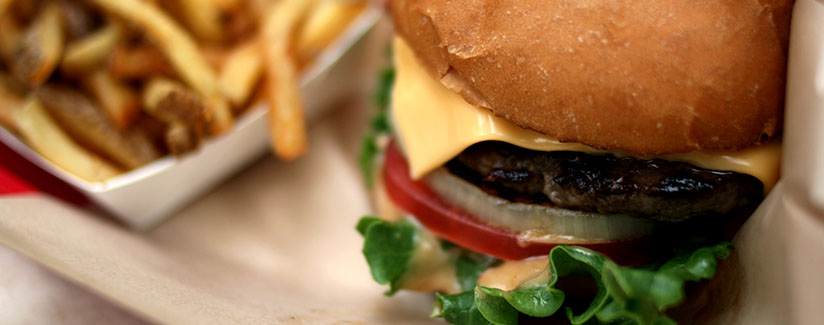
Why Doesn’t Fast Food Spoil?
Have you seen photos on Facebook or Twitter showing fast food that doesn’t spoil?
How about the YouTube video showing a cheeseburger that’s four years old?
We reached out to Dr. Sean O’Keefe, a food science professor at Virginia Tech, and asked him why fast food doesn’t spoil.
Why doesn’t fast food spoil? Shouldn’t the bun and burger get moldy? Why don’t the fries spoil?
Dr. O’Keefe:
Fast food spoils the same as any other food. A couple of things about the fast foods in question make them less susceptible to spoilage. The high salt and low moisture contents in the fries and burgers keep them from mold growth. The bun, like most bread, has propionic acid added (a natural product from microbial action), which prevents mold for a long enough time until the moisture in the bun decreases to a point where mold will not grow. The burger patty has high salt and is dried during the cooking process. The fries have low moisture and high salt contents. So the combination of high salt and low moisture prevents spoilage.
If I cook a burger at home, will it spoil? Won’t the bun spoil?
Dr. O’Keefe:
Let’s define spoil. Foods deteriorate via a number of different mechanisms. Mold growth is one obvious way foods can spoil. I guarantee I can measure things like oxidation and lipolysis in the fries and burgers in those pictures and show that they are spoiled even though there is no obvious mold growth. If you cook a high fat, high salt burger at home in a thin patty and then leave it where it will dry out, I do not expect that it will get moldy quickly. That is not to say it is not spoiled – probably, pathogenic bacteria may have grown or other chemical reactions have occurred, resulting in spoilage.
The people aging these fast food products are doing so to try and paint fast food as unhealthy because they are full of preservatives. This is not correct. They are looking for mold growth as a measure of spoilage and mold does not grow at very low levels of available water. Peanut butter does not get moldy because it has low available water, but it will definitely spoil if stored at room temperature in presence of oxygen (via oxidation reactions). Are these people spazzing out about peanut butter? I didn’t think so. If I let a hamburger bun dry out, it will never get moldy, as long as the available water level is low.
Should we be concerned about the food we eat from fast food restaurants?
Dr. O’Keefe:
Fast food can be part of a healthy diet, but you should not be eating fast food three times a day, seven times a week. Once in a while, as a treat, it is perfectly fine to eat fast food. But many fast food choices have high sodium and fat contents, and some fast food choices have extremely high levels of calories and fat. You should look at the caloric content information available at the restaurants and make menu choices based on that. Your normal diet should have plenty of fresh fruit and vegetables.
Does fast food contain a lot of preservatives?
Dr. O’Keefe:
Fast food is consumed almost immediately after cooking, so there is no logical need for preservatives. The reason the burger, fries and buns do not mold in those cases is that they have low available moisture and high salt (the fries and burger). Drying and salting have been used to preserve foods for many thousands of years. The fact that drying and salting prevent or delay mold growth is no surprise at all. Buns would probably have the same mold growth inhibitor used in most commercial bread, propionic acid. Propionic acid delays mold growth and is found naturally in things like Swiss cheese. So the short answer is no: fast food does not have more preservatives than any other processed food.
How long does fast food keep before it should be thrown out?
Dr. O’Keefe:
We separate foods into perishable, semi-perishable and non-perishable categories. Perishable would be things that require refrigeration. Semi-perishable are things like bread that are OK at room temperature but will get moldy eventually, and non-perishable are things like crackers that can stay many months at room temperature without spoiling. Fast food is a combination of perishable and semi-perishable items. You can store these at low humidity, allowing them to dry out, then leave them for months without growth of mold. But they would not be safe to eat.
You should treat fast food as any other food. If you have a meat item, eat it immediately or refrigerate a day or two. Fries can be held longer because they have less free water than the burger patty (free water is needed for bacteria and mold growth), but they wouldn’t taste very good the next day, so why bother?
The people showing pictures of these burgers are trying to grind an axe and say fast food is full of preservatives and are therefore bad for you. The reason we don’t see mold is simply low moisture and high salt in the foods, something people knew would preserve foods many thousands of years ago – why should people be surprised at this today?
“Burger/Ink” by Christian Kadlubamizo is licensed under CC BY-SA.


























